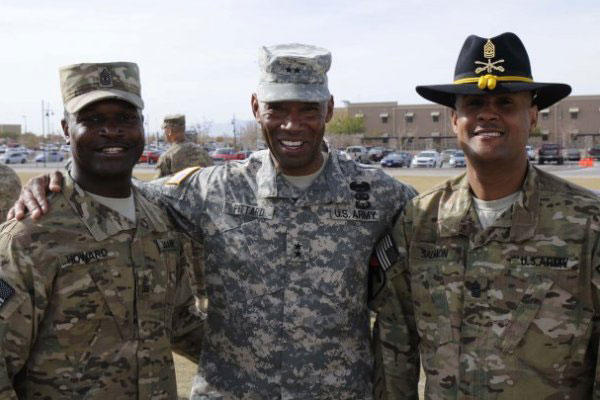The Pentagon named a two-star Army general with experience in Iraq to head the mostly Special Forces advisory mission to shore up the struggling Iraqi army against Islamic extremists threatening Baghdad.
Maj. Gen. Dana J.H. Pittard will be put in charge of the new unit to be called the "Combined Forces Land Component Command, Iraq," Pentagon officials said.
Pittard, a West Point graduate and deputy commander of U.S. Army Central (ARCENT), will have command of up to 300 combat-equipped mostly Special Forces troops from the U.S. Central Command that President Obama has authorized to go to Iraq.
Pittard led an armor unit in Operation Desert Storm in 1991 and served two combat tours in Operation Iraqi Freedom.
About 50 more of the authorized troops arrived in Baghdad last night, joining about 90 others already on the ground, Pentagon officials said.
The troops have already set up a joint operations center to "serve as a fusion center where information that's coming in from the various teams can be consolidated and it can be analyzed," said Army Col. Steve Warren, a Pentagon spokesman.
Warren declined to say whether the JOC was in the "green zone" on the grounds of the U.S. Embassy or elsewhere in Baghdad.
The troops at the JOC will take at least two weeks to conduct an assessment of the situation on the ground, the capabilities and needs of the Iraqi forces, and the status of the militants of the Islamic State of Iraq and the Levant (ISIL).
Much of the intelligence for the JOC will come from the 30-35 manned and unmanned flights the U.S. has been conducting over Iraq, Pentagon officials said.
Once the assessment is concluded in 2-3 weeks, the intention was to open a second JOC at a location yet to be named in northern Iraq, Warren said.
The U.S. has moved the aircraft carrier George H.W. Bush into the Persian Gulf but President Obama has stressed that the Shia-backed government of Prime Minister Nouri al-Maliki will have to make overtures to the Sunni and Kurdish communities before airstrikes would be considered.
In Baghdad, Pittard will be working closely with Army Lt. Gen. John M. Bednarek, head of the Office of Security Cooperation in Iraq that manages sales and arms shipments to the Iraqi government.
When the troop movements are complete, Bednarek and Pittard together will have about 500 U.S. military personnel in their commands, Warren said. The troops included a Fleet Antiterrorism Security Team (FAST) of about 50 Marines to bolster Embassy security.
In Iraq Thursday, Maliki told BBC Arabic that his government would be buying Cold War-vintage fighter jets from Russia and Belarus to compensate for the slow delivery of U.S. F-16 fighters.
Maliki charged that the U.S. has a "long, very slow way" for delivering arms and especially for the sale of the 36 F-16s to Iraq.
"We shouldn't have just bought U.S. jets, we should have bought British, French and Russian jets to provide air support. If we had air support, none of this would have happened," Maliki said of the ISIL advances.
At the Pentagon, Warren said that the U.S. was attempting to deliver the first two F-16s "as quickly as possible" and the rest would arrive on schedule in the fall.
Iraqi Vice President Khader al-Khuzaei issued a call for Parliament to convene next week to choose a new government. Maliki on Wednesday rejected proposals for forming a "National Salvation Government" of all factions that would exclude him from power.
-- Richard Sisk can be reached at richard.sisk@monster.com




























